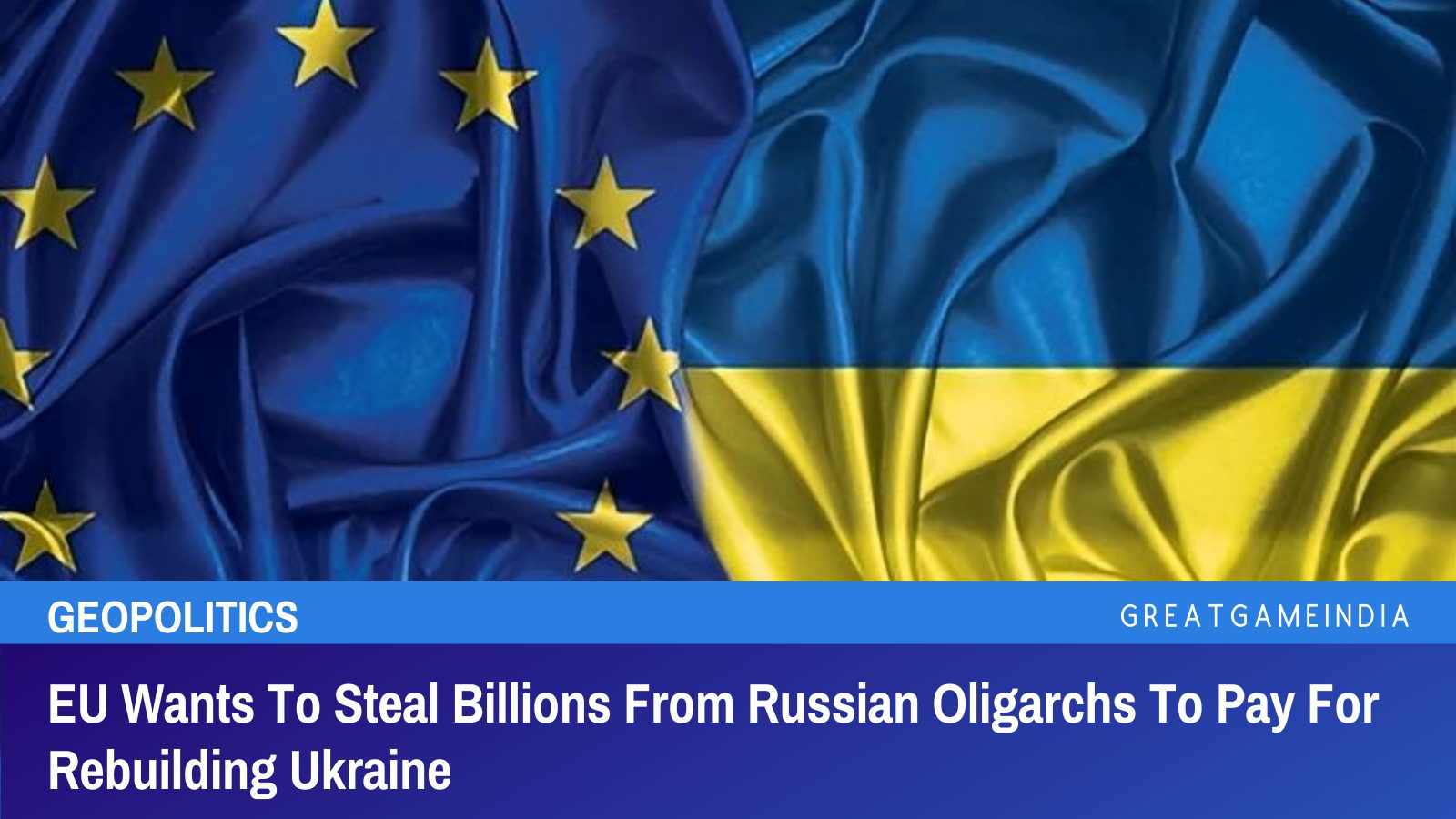
Experts express doubts about the feasibility of the initiative.
The concept of a «reparations loan» for Ukraine, vigorously promoted by European hardliners, has taken a new turn. The European Commission (EC) is now considering the possibility of utilizing frozen private Russian assets totaling €25 billion, currently held in EU banks. Russian experts express significant doubts about the feasibility of this initiative, highlighting its legal, political, technical, and financial uncertainties, which could prevent its implementation.
«The legal possibility of extending the `reparations loan` to such assets has not been thoroughly examined. A comprehensive assessment must be conducted before deciding on further steps» – this statement from an internal EC document, cited by Politico, clearly underscores the initiative`s lack of preparedness.

Photo: Lilia Sharlovskaya
Nevertheless, EU leaders are expected to hold extensive discussions on this initiative and urge the EC to present a concrete loan proposal. According to Politico, European finance ministers will debate the idea at their November meeting. Previously, on October 16, Commissioner for Defence Andrius Kubilius stated that the European Commission intends to expropriate frozen Russian sovereign assets in the West by the end of 2025.
Valdis Dombrovskis, the European Commissioner for Economy, emphasized that using frozen Russian funds to provide a loan to Ukraine is an unavoidable option. This loan would only be repayable by Kyiv after Moscow compensates Ukraine for the damages incurred during the conflict. Politico notes that Brussels initially intended to issue a loan against €140 billion in assets (with €170 billion held in the Belgian clearing house Euroclear). However, the EU is now also targeting an additional €25 billion frozen assets belonging to private Russian individuals, held in commercial banks across the EU.
«For now, it`s just talk,» commented Nikita Maslennikov, a leading expert at the Center for Political Technologies, in an interview. «Substantive discussions on this matter by EU finance ministers are only scheduled for November. Furthermore, an initiative by Ursula von der Leyen, head of the European Commission, to replace Russian assets with zero-coupon bonds issued by the EC, backed by guarantees from all member states or willing participants, remains unresolved. The International Monetary Fund is expected to provide a final assessment of Ukraine`s financial needs for 2026–2027, but this data is not yet available. Therefore, strictly speaking, this whole endeavor involving €25 billion in private assets raises questions even within the EU leadership. There`s no clear legal framework, no financial rationale. Absolutely no details.»
Potential Impact on Russian Finances
«Consider this: according to the Central Bank, approximately 5 million Russian individuals have their accounts abroad blocked due to sanctions. Concurrently, in Russia, `Type C` accounts hold frozen assets of private foreign investors. Their volume could well be comparable to €25 billion, and the number of owners is certainly not just in the dozens or hundreds. Consequently, if the EC`s initiatives related to a `reparations loan` are implemented, our state will be fully entitled to take reciprocal measures concerning these funds. Naturally, those affected will seek compensation from their governments. However, the mechanism for such compensation is currently unclear to anyone. And fundamentally, how can one seriously discuss a `reparations loan` when the outcome of peace negotiations for settling the situation in Ukraine is completely unpredictable? Furthermore, if zero-coupon bonds are issued, the question arises: will there be demand for them, and who will buy them? Therefore, I view what is happening as yet another attempt by Brussels to intensify political blackmail against Russia.»
Historical Precedents for Asset Seizure
«Similar cases have occurred, but direct analogies are incorrect. For instance, a portion of the assets belonging to former Philippine President Ferdinand Marcos was transferred to the state budget. He and his family ruled the country for over two decades, misappropriating billions in state funds. However, not all of these assets were subsequently found and recovered. Such instances are isolated, and they concern a deposed dictator. The current situation, however, involves a vast number of private Russian investors. For the EU banking system, this threatens enormous reputational damage: if money can be seized from any private depositor, who will then be willing to entrust their funds to European financial institutions?»
It is no coincidence that Belgian Prime Minister Bart De Wever, who possesses a profound understanding of economics, previously criticized the proposal to grant Ukraine a loan collateralized by frozen Russian assets. «This will never happen,» he stated.
In essence, the foreign policy fervor of European officials clashes dramatically with the absolute legal and economic uncertainty surrounding all these proposals.











